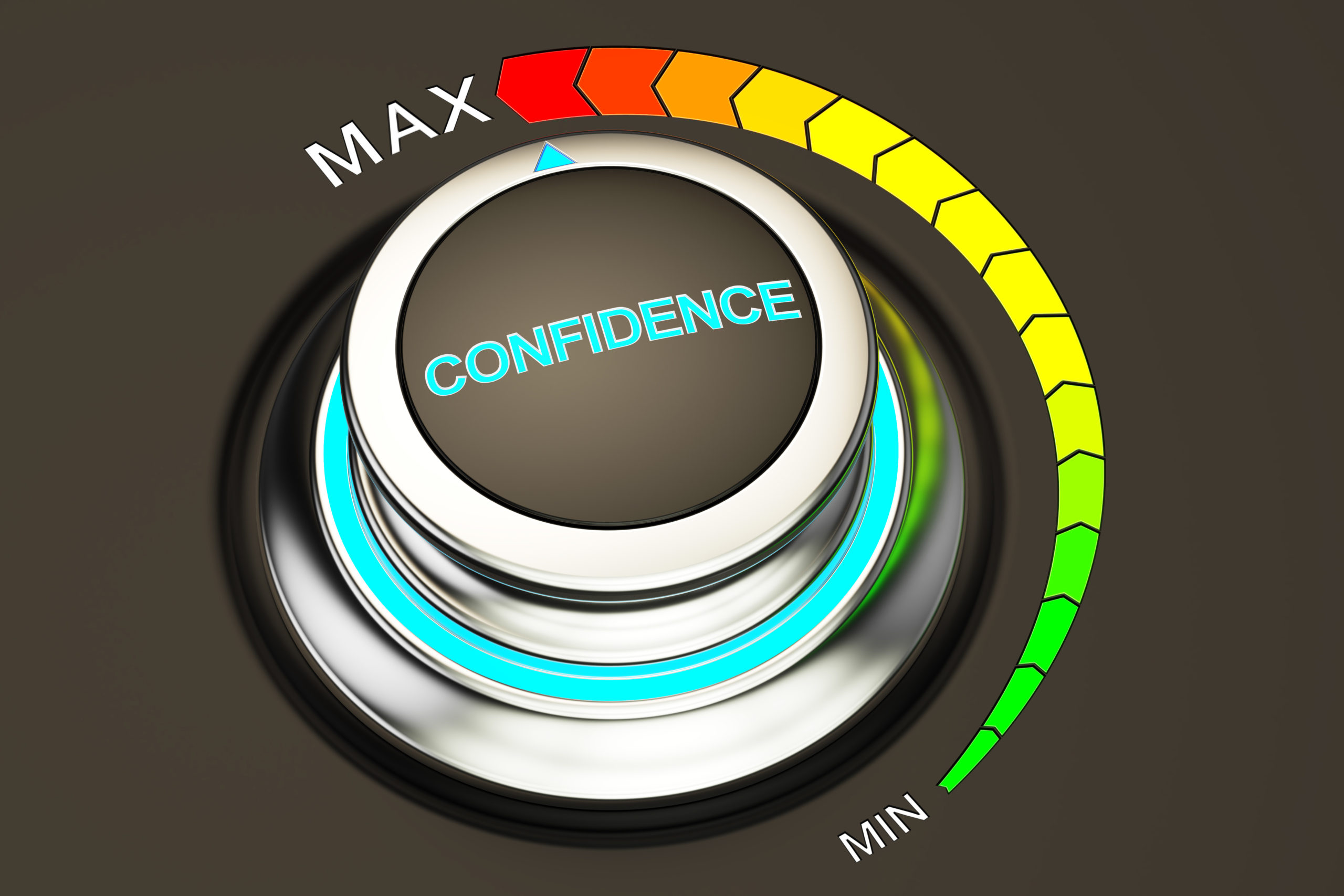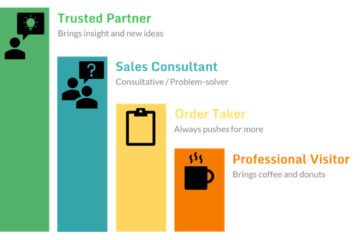
What is confidence?
con·fi·dence, noun
The feeling or belief that one can rely on someone or something; firm trust.
“we had every confidence they could get the job done”
A feeling of self-assurance arising from one’s appreciation of one’s own abilities or qualities.
“she’s brimming with confidence”
Why is confidence so important in sales?
People buy from those whom they trust. Trust stems from confidence. A lack of confidence breeds doubt. No one wants to buy from someone they have doubts about.
We all know what sales confidence looks and sounds like. It’s that swagger without cockiness. An assuredness in speech and mannerism that communicates to the customer or prospect that you know what you’re talking about and that you understand them and their position. It’s the lack of hesitation in your voice because you DO know them, their industry, their common challenges and how your offerings can help.
How can you gain more confidence or build confidence in the first place?
Start with an honest self-assessment.
- How much time per day do you spend increasing your industry knowledge?
- How much time per day do you work on building your understanding of your target accounts?
- What technology tools are you using to bring you targeted information about the industry and clients you seek to serve?
- How well do you understand your company’s offerings? What steps do you take to connect information (or training) on new or updated offerings with how they specifically impact customers and prospects?
- How often do you practice the conversations you are likely to have during the sales process?
- How often do you ask your colleagues about what is resonating with their clients and prospects?
- What process do you follow to make sure you learn from every sales win and loss?
If you fall short in any of the above areas, here’s a strategy to follow…
Questions 1, 2, and 3 deal with knowledge. Build your industry and account knowledge with consistent effort. Spend 30 minutes minimum EVERY day developing your knowledge-base.
- Consider doing this outside of regular working hours and look at it as personal development. Remember, this personal growth goes with you when and if you make a career change.
- Avoid spending prime selling hours doing research. Top performers build confidence by actually selling during these hours.
- Spend your 30 minutes digesting the information and not looking for it. Google Alerts are still a thing and it’s likely that your company has access to other “push” technologies that will send filtered information directly to your inbox or news reader. Find out and use these tools.
Question 4 deals specifically with product knowledge. Build your product knowledge by actively engaging in all product learning events and asking, “what if” and “scenario” questions.
- Get specific answers to “what’s in it” for your customers and prospects.
- Play the role of the customer or prospect and raise the objections you know they will. Review this information in your sales team meetings.
- Ask questions about things that are unclear. Keep asking until you are confident you completely understand.
Practice until you are confident. Question 5 is all about role-play. Write a list of the potential sales conversations you may encounter in the sales process and draft a loose outline for what a successful exchange sounds like.
- If you’re new, ask for help from a successful sales team member or your sales manager.
- View Josh Kaufman’s TED Talk, 20 hours to learn anything.
- Spend 20 hours practicing your conversations.
- Want a great way to monitor your progress? Record your first role-play conversations and then again after 20 hours of practice. How do you sound now?
Sharpen the saw. Questions 6 and 7 relate to the importance of continual learning. Learn from others and yourself.
- There’s likely a ton of excellence right around you. Learn from them. If you are a lone sales rep, reach out to your outside network and setup a weekly or monthly quick call to share what general sales strategies are working for each of you.
- Learn from EVERY sales transaction you are part of – whether personally or as a part of a larger sales team.
- Ask why a customer decided to partner with you or why a prospect decided against your offering. The answers may surprise you. But they will definitely help build your confidence.
Follow this plan consistently for 6 months and then re-assess! I think you will be amazed with your results.


